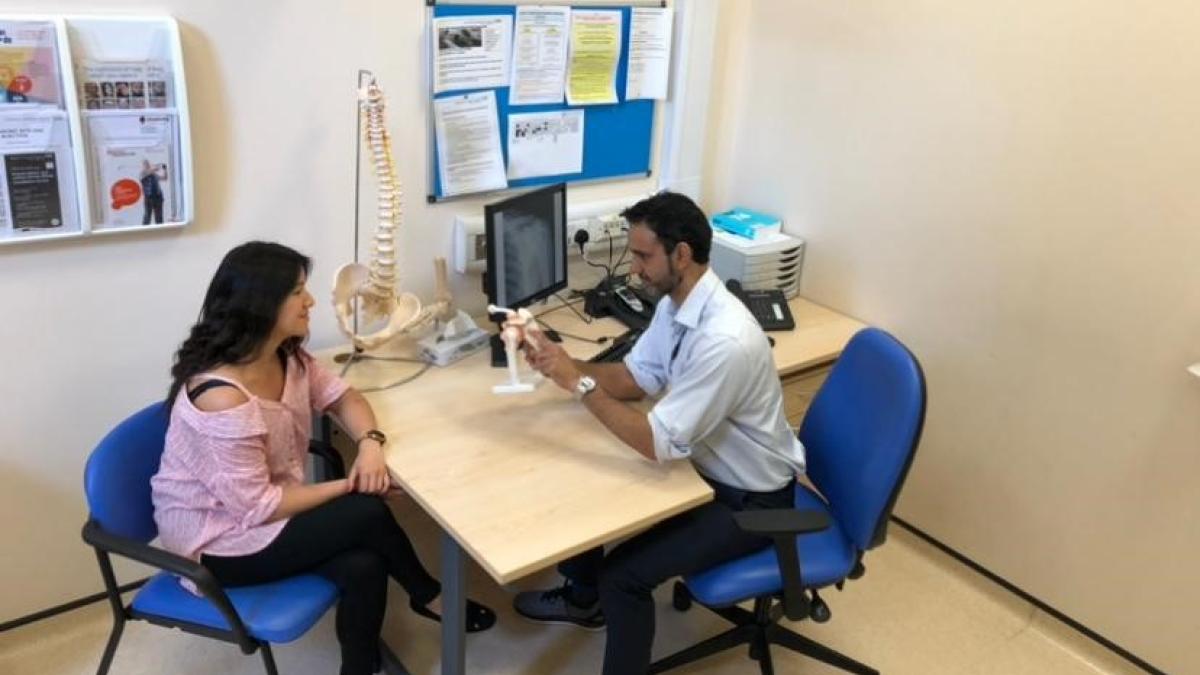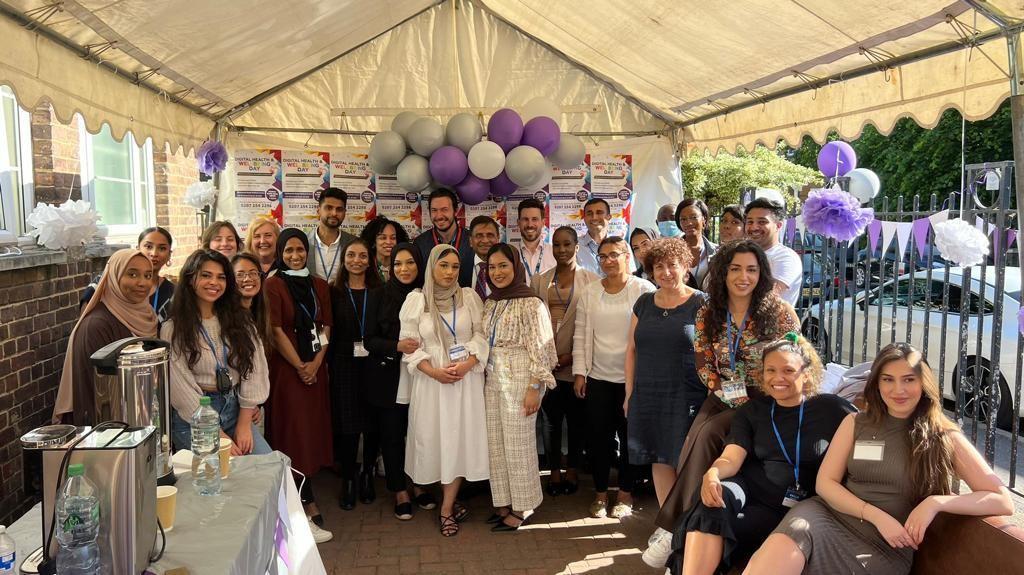A team of FCPs working within City and Hackney in East London have implemented a number of interventions with the aim of reaching more patients with musculoskeletal (MSK) information and advice.

Matthew Harrison, Ambre McGee and Emma Dunphy are the three FCPs covering eight primary care networks (PCNs), which serve a population of 350,000 patients in total.
With such a huge population to see, they have been proactive in looking for opportunities to reach more people with Musculoskeletal (MSK) information and advice.
Ambre says: 'Being an FCP is very much an evolving role in terms of what we can do aside from seeing patients. We know that seeing patients is our main role but we are also aware there is only a small team and we have a huge demand of patients with MSK issues that need to be seen in primary care.'
In order to reach a wider audience they recently set up a webinar on back pain - a topic they felt would be useful for both older and younger patients. They made it interactive using the chat function and broke down some common myths on the subject which if not challenged, can be harmful to how people go about treating or even reacting to back pain. After trialling this within one PCN and reaching over 200 patients with evidence-based advice and information they have plans to roll out more across the networks.
'We wanted to develop a webinar with an inclusive topic and we know that back pain is something which can affect everyone in their lifetime, from an active younger person to an older inactive person. Patients in the area received a text from their GP practice with details of the webinar and 260 people signed up in total. We used the chat function to make it interactive and we were able to get feedback on a number of other subjects that would be helpful for us to cover in the future.'
Future topics will cover osteoarthritis and the benefits of exercise later in the year, supporting wider national initiatives such as the Stronger My Way campaign developed by the CSP.
Inequalities and the wider picture
Matt and the team are aware that not every patient in their area are able to afford or use digital technology and take advantage of the webinars they are developing; as a result they worked with the primary care team to arrange a digital wellbeing day, hosted at Richmond Road Medical Practice.
To do this they linked with the hospital trust and community organisations in Homerton to set up stalls to talk to people about access and use of technology in delivering healthcare services. They also partnered with Age UK who enlisted a team of people who were able to share specialist knowledge with patients via lectures and provide long-term loans of digital tablets to access online resources.

The event supported over 350 patients throughout the day and those in attendance were able to access 20 community services, while also being able to access their GP team for general health and blood pressure checks.
Matt says: 'We are really proud of the work we put in to set up the digital day for patients. It wouldn’t have happened without an FCP service because we had the ability to link all these organisations across the system including primary, secondary, community and the third sector, in order to reach the patients most in need of our help.
'For me, what is most valuable about FCP currently is the impact it has had on patient journeys and experiences with MSK pain in primary care. Patients can now have almost instant access to a specialist clinician in MSK, receive a diagnosis, investigation and a treatment plan within one session. Ideally we want to expand this and attempt to educate patients earlier in their health journey in relation to lifestyle, exercise and injury prevention. That's the big picture.'
Great example
Susan Hayward-Giles, CSP assistant director of practice and development, said: 'This is a great example of an FCP service utilising their skills and expertise along with their relationships in primary care to serve the need of their unique patient population.
'By understanding the barriers patients have accessing their service and also recognising their common health concerns, they’ve been able to implement a number of interventions that have had a really positive impact.'
Collecting data and looking to the future
Matt, Emma and Ambre all agree that collecting data is time consuming but more important than ever considering they have seen 30,000 patients since their service started two years ago.
Emma says: 'Primary care databases provide an unprecedented opportunity to collect data for FCP that is comparable at a national level. The data can inform practice for individuals, teams or across the CCG. The data facilitates local decision making but also larger research opportunities where we can learn about the ARRS roles and FCP on a bigger scale. We would love to be a part of that.
'The potential for these roles to grow and change is endless. We will take regular opportunities for research and evaluation to ensure we are growing in the right direction for both patient benefit and NHS benefit.'
The team want to build on the national evaluation of FCPs that the CSP commissioned a few years ago as it will provide them with a strong evidence base as to what they can offer patients and the wider team and also how they can utilise their skills to inform the research agenda going forward.
They are also looking at ways they can continue their digital inclusion work and provide group consultations in order to reach more people in a shorter space of time.
Matt adds: 'It isn’t solely about working with GPs but all of the roles under the Additional Roles Reimbursement Scheme (ARRS) within primary care. We need to work collectively as a team in order to achieve our goals. An aspect of that is sharing our specialist MSK knowledge with the other healthcare professionals within the GP surgery such as the social prescribers and physician associates, who have both expressed that they are keen to have more exposure to MSK teaching.'
If you’re an FCP and would like to share the barriers you’ve overcome and the different ways you are working to best serve your unique patient population then we’d love to hear from you. Get in touch with us at fcp@csp.org.uk
Number of subscribers: 3



































